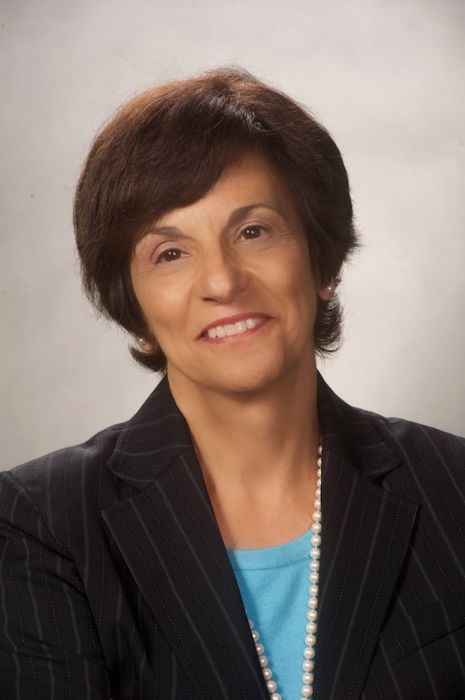 For 30 years, Marie Palladini was a federal law enforcement officer with the U.S. Department of Fish and Wildlife Service, working undercover to catch smugglers of endangered species and investigating all kinds of criminal cases involving wildlife, both in the field and as a manager.
For 30 years, Marie Palladini was a federal law enforcement officer with the U.S. Department of Fish and Wildlife Service, working undercover to catch smugglers of endangered species and investigating all kinds of criminal cases involving wildlife, both in the field and as a manager.
It was her dream job and she could have easily retired content with having led a successful career.
Instead, she found herself starting a whole new career, one she said she equally loves–as associate professor of public administration, and currently acting associate dean of the College of Business Administration and Public Policy at California State University, Dominguez Hills.
“I said I’m going to retire and start a brand new career,” Palladini recalled. “I think I’m very blessed because this is the second time in my life where I feel like I have my dream job. I really do. I loved my career as a federal agent, but I really love teaching. I think more than I ever expected. It’s a real satisfaction, and I think it’s partly because of our students. It may not be the same at another university.”
On the faculty of CSU Dominguez Hills since 2007, Palladini brings the experiences she had in the federal government and as a lawyer into the undergraduate courses she teaches in criminal justice and for the Master’s of Public Administration (MPA) online program.
“When I teach students about the laws of arrest or the laws of your Fifth Amendment right against self-incrimination, I can tell them ‘this is how it works,’ and ‘this is what I did,’” she said. “When I talk about privacy and recordings and undercover work, it’s nice to bring the experience into the theory.”
The students undoubtedly get a kick out of hearing about the cases she was involved in as an undercover federal agent–like the time she found ivory tusks smuggled in furniture. For Palladini, that’s part of her strategy to engage them, not just by getting their undivided attention with a harrowing example in the field, but by using that to launch a discussion relevant to the course, and getting them to think critically. She strongly believes that students learn best this way.
“You can remember a concept–the Fourth Amendment says you can’t search somebody’s home without a search warrant. But if you tell him about a case where the government kicked somebody’s door in and didn’t have a warrant and even though the person committed horrible drug crimes, the drugs couldn’t be used against him, then they learn it, because they read the case,” she said, explaining how she has students read Supreme Court briefs, something usually done in law school.
Palladini said her out of class involvement with students is equally important to the teaching process. She likes to be there for the students, to answer their questions, encourage them to take internships, and generally guide them along their career path.
The students do seem to appreciate Palladini’s approach. She gets numerous emails every year from students thanking her for making time for them before and after class or letting her know they got this or that internship or even a particular job.
“I always try and go the next steps with students,” she said. “I just want them to know that they have a chance and that we care about them and that they can be successful.”
Palladini has a Juris Doctor degree from Southwestern University School of Law and a bachelor’s degree in criminal justice from Indiana University of Pennsylvania.